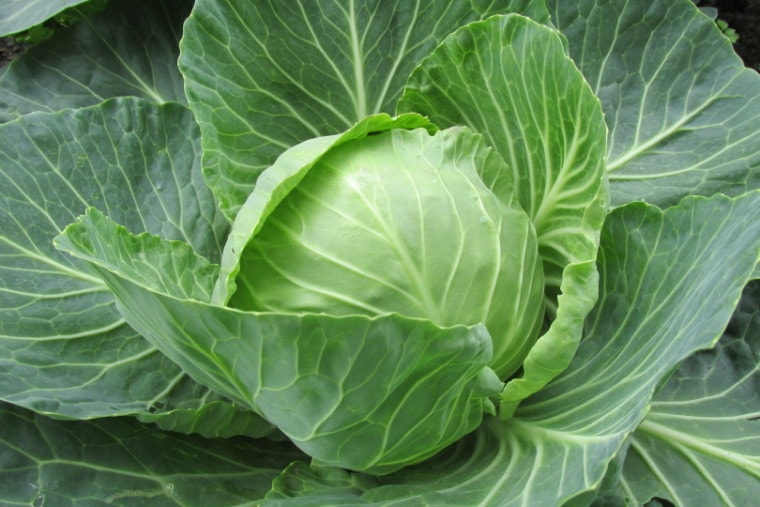
Click to Skip Ahead
Although each dog is unique and all new human foods should first be checked with their vet before being introduced, cabbage is generally a safe snack option in moderation. Just like people, this green, leafy veggie may not be at the top of your dog’s preference list with its bitter taste, but if they are eager to take a bite, it is safe to let them. Some dogs may not eat cabbage on its own but may appreciate it as a topper on their kibble to give it some extra flavor.
Whether you serve cabbage cooked or raw, your dog can benefit from it. However, moderation is important as too much of this veggie can cause gas and discomfort in your dog’s stomach.
Is Cabbage Beneficial to Dogs?
Cabbage is in the same family as broccoli, Brussels sprouts, and cauliflower, which are all safe and nutritious vegetable options for your dog to eat. They are also all low in calories, making them great snacks for overweight dogs. They can also be broken up into small, bite-sized pieces for dogs that are undergoing training and need plenty of healthy treats as a reward for their obedience.
Cabbage is high in fiber, which is helpful in alleviating constipation or diarrhea. It improves digestion and helps keep your dog’s gut healthy. Fiber-rich foods, such as cabbage, will keep your dog feeling full for longer and will prevent them from overeating.
This leafy green is also full of minerals and antioxidants, such as potassium, magnesium, and beta-carotene. These nutrients are necessary for helping with bodily functions but it is important to note that if your dog is already on a good quality kibble, they are already getting everything they need.
Is All Cabbage Good for Dogs?
Red and green cabbage are both safe and good for dogs. Red cabbage is a bit more nutritious of the two as it has more vitamin A, vitamin C, iron, and potassium. However, green cabbage is also nutritious, with it containing more vitamin K and folate. Red cabbage is also sweeter when cooked and might be the preferred option between the two for your dog.
Why Is Too Much Cabbage Bad for Dogs?
If your dog runs off with a cabbage and gobbles down the whole thing, you don’t need to rush them to the vet, as they should be okay. If it happens frequently, it could become more of a problem due to a chemical compound in the cabbage called thiocyanate. In large amounts, this compound can cause a deficiency of thyroid hormone in people, and may have a similar effect in dogs.
Another problem that may arise if your dog eats too much cabbage is gas. A gassy pup generally ends up being an uncomfortable pup and one that can stink out a room. If you want to avoid bad smells coming from your dog, keep their cabbage consumption low. Although less likely, the production of gas from cabbage in some breeds can lead to bloat which is another reason to feed only small quantities.
Ingestion of large amounts of cabbage might cause some gastrointestinal upset as your dog struggles to digest it. In addition, if the cabbage was decomposing it might contain mold or fungal toxins which can lead to problems. So, if your dog has gotten into a large amount, call your veterinarian for advice.
Conclusion
Dogs can safely eat red or green cabbage and will benefit from the fiber, minerals, and vitamins it contains. It can be fed cooked or raw and can be given as a topper, an addition to a meal, or as a snack. Although nutritious, moderation is key, as too much cabbage can lead to gas and discomfort in your dog’s stomach.
Featured Image Credit: betexion, Pixabay








